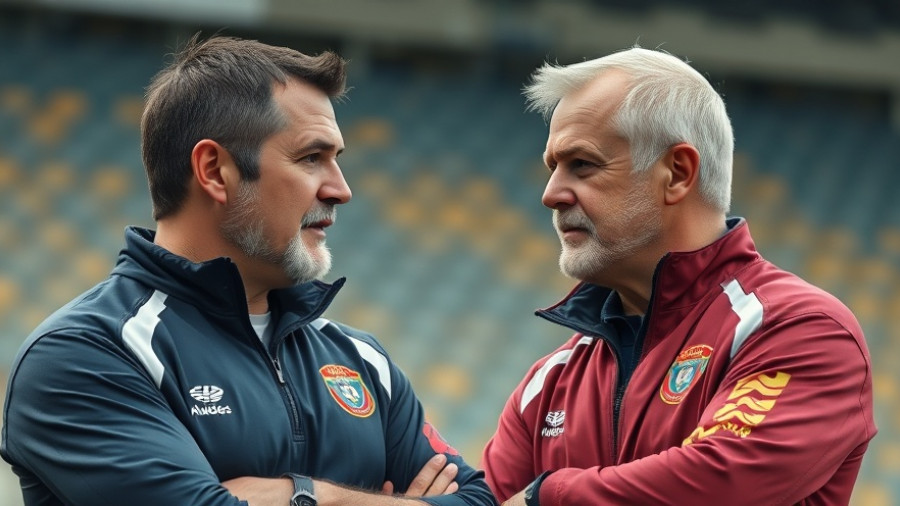
Why John Plumtree's Situation Highlights a Broken Rugby System
The recent decision to reassign John Plumtree as head coach of the Sharks starkly illustrates the cracks in the South African rugby structure. Questions surrounding the management of the Sharks team have reignited discussions on how national commitments impact provincial coaching decisions. Insights shared by fellow coaches underline that Plumtree's challenges stem not merely from performance, but from a flawed system that hinders coaches working with top-tier players. With a star-studded roster including Springboks, the expectation is for performance, yet the reality is far from ideal.
The Impact of Injury Management on Team Dynamics
It’s common wisdom in sports that injuries can take a toll not just physically, but mentally on players returning to the field. Plumtree's struggles are further compounded by the difficulty in managing these players—balancing their physical readiness with their mental state when returning from injuries poses a significant challenge. There's an expectation from fans and management alike that these players will perform at peak level; however, this pressure can lead to strategic blunders, as seen in the Sharks’ recent match against Ulster. The emotional weight on the coaching staff is immense, as they tread the line between necessary playtime and player welfare.
The Balance Between Provincial and National Commitments
As discussions unfold regarding player release for national duties, it becomes clear how the national team’s needs overshadow those of provincial franchises. The pressing question becomes: how can coaches, like Plumtree, build and nurture top-performing teams when most of their prime players are pulled away for international obligations? The sentiment shared by coaches like Jake White points to an imbalance that is detrimental not only for franchises but ultimately for the players themselves. Rugby players under this system may prioritize national selection over their franchise, leading to a question of loyalty and conflict of interests.
Franchise System Needs Immediate Overhaul
This floundering system cannot be sustained. The predicament faced by Plumtree and other provincial coaches illustrates a fragile framework that requires urgent reformation. Lack of support, combined with an ever-growing expectation for success, invites ridicule and frustration from fans who expect to see their teams perform at the upper echelon of rugby. As Plumtree steps into a mentoring and advisory role following the season, the calls for a restructuring on how coaching, player management, and selections are approached intensify.
A Vision for Change: The Role of Stakeholders
Stakeholders at multiple levels—from team management to fans—play a pivotal role in how change can be effectively implemented. With voices like Marco Masotti calling for unity and structured efforts to salvage the lost season, the opportunity for developmental growth remains. Implementing efficient frameworks within the Sharks organization could serve as a template for other franchises facing similar challenges.
Conclusion: A Call for New Strategies in South African Rugby
As the Sharks organization seeks to rethink its rugby strategies moving forward, it becomes clear that developing a robust, sustainable league model will be integral for success. Evolving beyond a system that prioritizes immediate results over long-term growth is necessary, and understanding the dynamics between provincial needs and national commitments should take precedence. The pressure may lead to immediate consequences for coaches like Plumtree, but the overall health of South African rugby depends on systemic change. For aspiring athletes, current players, and franchise coaches—this is a pivotal moment for growth and development within the passion-filled world of rugby.
 Add Row
Add Row  Add
Add 




Write A Comment